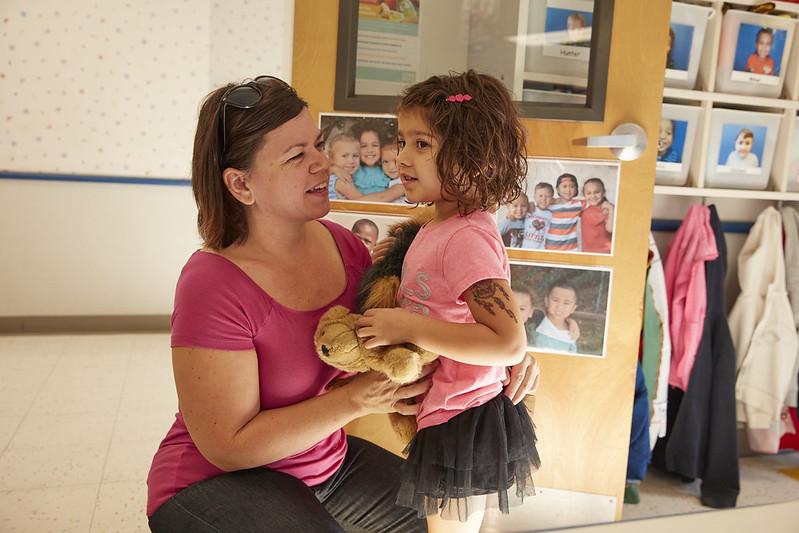Strategies for Engaging in Meaningful Conversations with Your Children

Back to School Conversations: Making Family Talks More Meaningful
As the back-to-school season rolls around, parents are keenly aware of the trials and tribulations their children may face. From first-day jitters to the pressure of new academic environments, children may feel a swirl of emotions as they adjust to these changes. But how can families transform the seemingly simple question, “How was your day?” into a rich conversation that helps children express their feelings and experiences? Experts suggest that incorporating thoughtful strategies into daily interactions can foster deeper connections and quell anxiety.
Ariel Bronson, an Inclusion Services Advisor at KinderCare, emphasizes that impactful discussions don’t need to be confined to a set schedule. “You don’t have to set aside a specific time in your day to have meaningful talks with your child,” she notes. Instead, she advocates for seizing small moments throughout the day. This approach not only makes conversations feel more organic but also allows parents to engage with their children when they are naturally open to communication.
Creating Opportunities for Engagement
The key to unlocking meaningful conversations lies in creating an environment where children feel comfortable sharing their thoughts and emotions. One effective way to do this is to incorporate open-ended questions that encourage more than just a “yes” or “no” response. Instead of asking, “Did you have a good day?” consider asking, “What was the best part of your day?” or “What’s something new you learned today?” These types of questions prompt children to elaborate, allowing parents to gain deeper insights into their child’s experiences.
Moreover, parents can create a family ritual, such as sharing highlights from their day during dinner or car rides. These everyday moments can serve as touchpoints for meaningful dialogue. When children see that their parents also share their day, it fosters a sense of equality and encourages a two-way street in conversations. It’s more than just sharing; it’s about building a culture of openness and communication within the family unit.
Understanding Emotional Triggers
Recognizing emotions is another essential component of nurturing meaningful conversations. Children often struggle to articulate their feelings, especially when faced with the complexities of school life. Parents can help bridge this gap by validating their child’s feelings. When a child expresses anxiety about a school project or talks about an unpleasant interaction with a peer, responding with understanding can go a long way. Phrases like, “It sounds like that made you upset,” or “I can understand why you would feel that way,” help children feel seen and heard.
It’s crucial to remember that emotional discussions don’t have to be heavy or intricate. Even light-hearted conversations about daily occurrences—or silly stories from parents’ own childhoods—can serve as gentle gateways into emotional territories.
Active Listening: The Heart of Communication
Active listening is one of the most important skills for parents to develop when engaging with their children. This means putting aside distractions, maintaining eye contact, and genuinely focusing on what the child is saying. Showing that you are invested in their conversation not only affirms their feelings but also encourages them to share more.
“Children often gauge their worth based on how their parents react,” says Bronson. “When they sense their parents are genuinely interested, they feel valued, which encourages even deeper conversations in the future.”
Leveraging Technology for Connection
In today’s digital age, technology can also facilitate family conversations. There are numerous apps and games designed to foster communication among family members. Some apps prompt users with questions that drive discussion, while others use storytelling to ignite curiosity and sharing among family members. While it’s essential to maintain personal interaction, these tools can serve as useful supplements.
Conclusion: Forms of Connection
As families navigate the school year, turning mundane inquiries into meaningful exchanges can have profound benefits. Conversations are not just about sharing information; they are about connection, empathy, and support. By adopting simple strategies, parents can create a nurturing environment where their children feel comfortable expressing themselves.
To sum it up, don’t shy away from those everyday moments with your child. Transform the routine into opportunities for meaningful interaction. The connections you build now can lead to deeper, more trusting relationships in the future, embracing all the highs and lows of growing up together. After all, it’s these small yet significant conversations that lay the groundwork for a lifetime of communication and trust.




